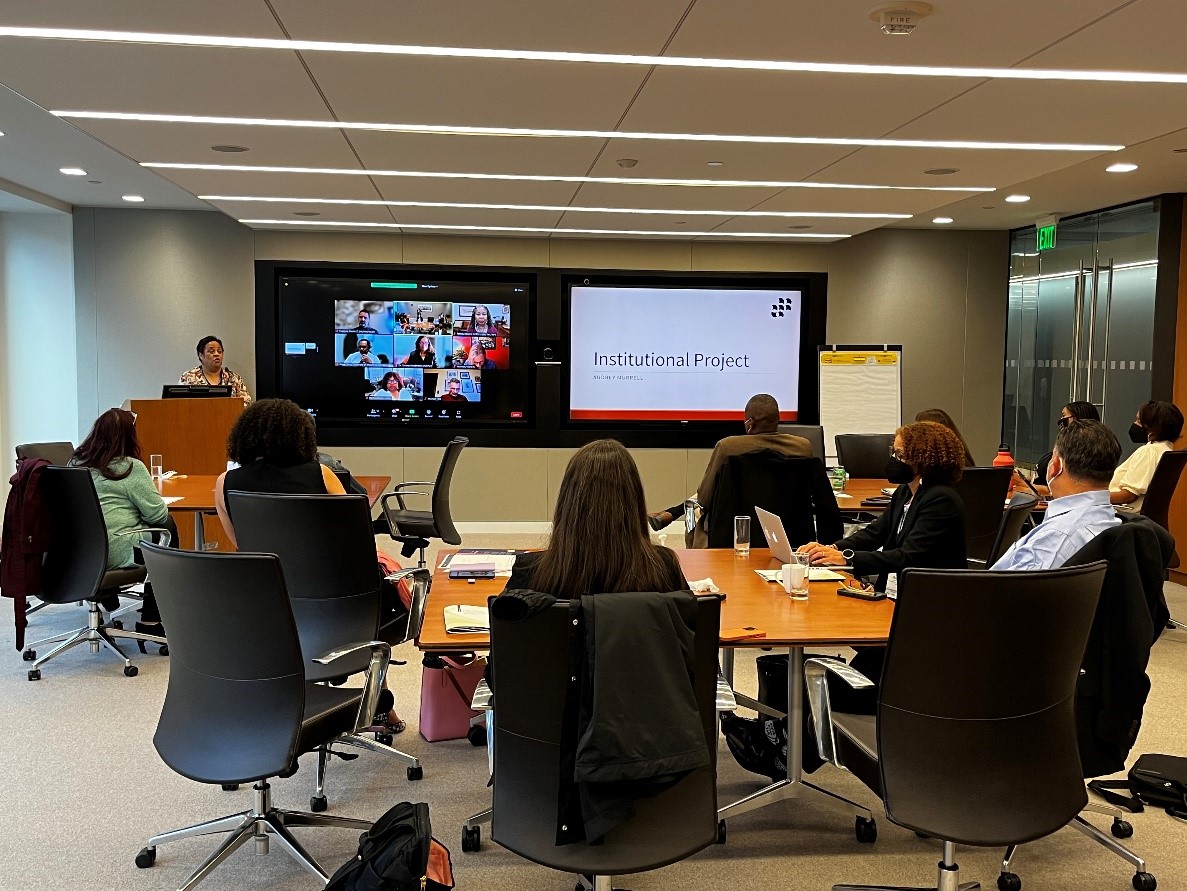
Program Elements
Upon completion of TRANSFORM, scholars will be able to:
- Apply a rich set of leadership skills in their own work context
- Build strong mentoring relationships to advance their career goals
- Leverage executive coaching to more consciously and deliberately author their own career
- Design and implement a transformational leadership project in their own institution
- TRANSFORM Scholars will complete six, 4 week-long online leadership modules. These modules will build on and more deeply explore the concepts offered at the AAMC Mid-Career Faculty Leadership Seminar.
- Modules include:
- Navigating Academia as a Mid-Career Faculty Member
- Nurturing Your Well-Being
- Strengths-Based Leadership
- Strategic Career Planning
- Building National Visibility by Leveraging Social Capital
- Career and Resource Sustainability
- Online Modules will draw extensively on the professional experience, and knowledge of participants and will employ a mix of synchronous and asynchronous learning opportunities. Scholars should expect to allocate approximately 2 hours of work per unit.
- Program Mentor: Scholars will be matched with a mentor who has similar areas of expertise and career paths. The mentor will help the scholar address academic and research-related challenges specific to mid-career faculty (i.e. moving to independent investigator status, procuring research funding, navigating the promotion and tenure process, pursuing leadership opportunities inside and outside of their home institution, etc).
- Peer-to-Peer Mentor: Scholars will be paired within small groups of current TRANSFORM Scholars. These small peer groups will enable Scholars to support each other and share their perspectives and resources. Scholars will work in small peer-to-peer mentoring groups to share challenges, strengths-based practice skills, and strategies for success.
- Scholars will have the flexibility to take additional short online self-paced research courses to sharpen their research skills. This includes Clinical Research, Applied Biostatistics, Measurement in Clinical Research, and computer Methods in Clinical Research.
- An Institutional Leadership Project is an opportunity to elevate the Scholar’s leadership and visibility within their institution. These leadership projects can be instrumental in facilitating relationships with institutional leaders that will put scholars on their radar for leadership opportunities.
- For the Institutional Project, Scholars will identify an organizational change project with their institutional leader (e.g., Dean, Dept chair) which targets an issue of importance to both the institution and to the Scholars’ leadership and professional goals. In collaboration with their institutional leader, Scholars will design and present their project at the end-of- year TRANSFORM symposium. Institutional leaders are expected to attend the presentations of their faculty.

- Scholars will use the results of baseline assessments that measure psychological safety, resilience, and self-efficacy to identify personal learning goals.
- Scholars will participate in six responsive, semi-structured group coaching sessions. 90- minute virtual sessions, led by an executive coach.

 Career Development
Career Development TRANSFORM
TRANSFORM



